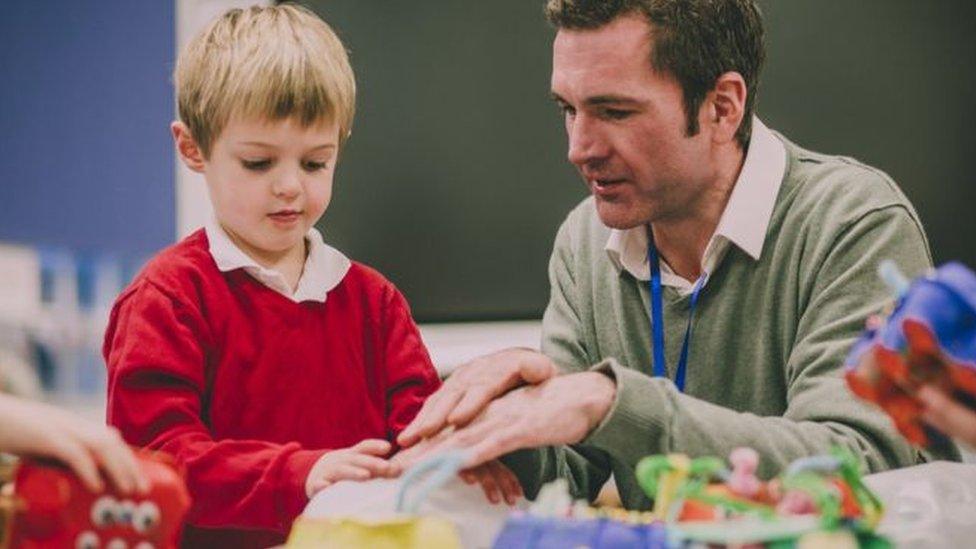Bristol health staff ' do not feel safe' over whistleblowing
- Published
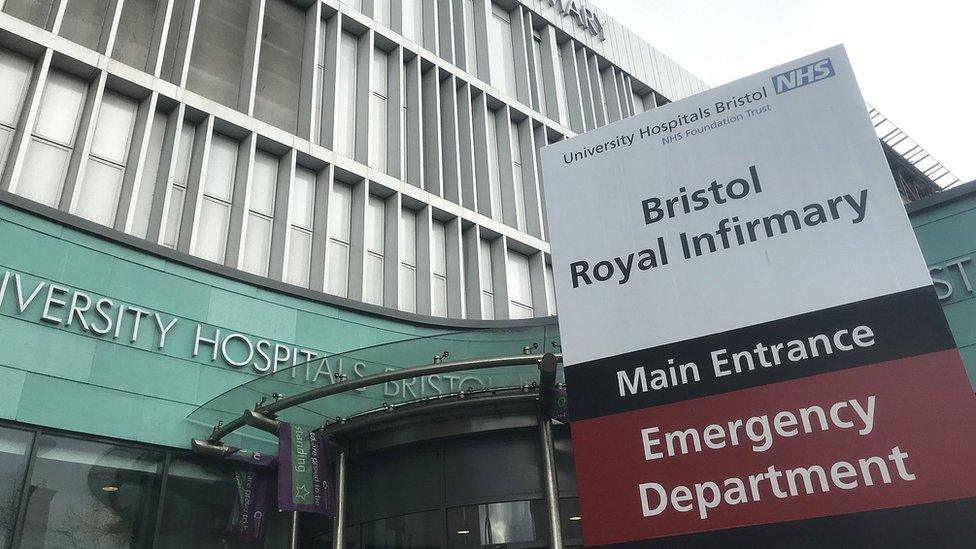
The trust runs the city centre Bristol Royal Infirmary and Bristol Children's Hospital.
A third of staff at a Bristol NHS trust do not feel "safe" speaking up about dangerous practices or issues such as racism, a report has claimed.
And only half have confidence that University Hospitals Bristol & Weston NHS Trust (UHBW) would actually do something about it if they did.
The trust runs the Bristol Royal Infirmary and Bristol Children's Hospital.
It said the report made "uncomfortable reading" but accepted its findings.
Bosses have also since vowed to change its culture by listening better to staff, according to the Local Democracy Reporting Service.
The trust's annual Freedom to Speak Up (FTSU) report found that workers who do raise concerns are labelled as "troublemakers or agitators", a UHBW board meeting heard.
This further undermines the organisation's FTSU campaign because it stops others from bothering in the first place, the meeting heard.
The latest NHS staff survey results showed a further decline in the percentage of respondents who felt safe to speak up and had confidence in the trust's response if they did speak up, according to LDRS, external.
It said that while the survey's results placed UHBW above the national average, "it is not good enough".
The report said: "Staff were concerned about confidentiality, confrontation and challenging difficult personalities.
"Some comments indicated that there was a fear of retaliation from speaking up."
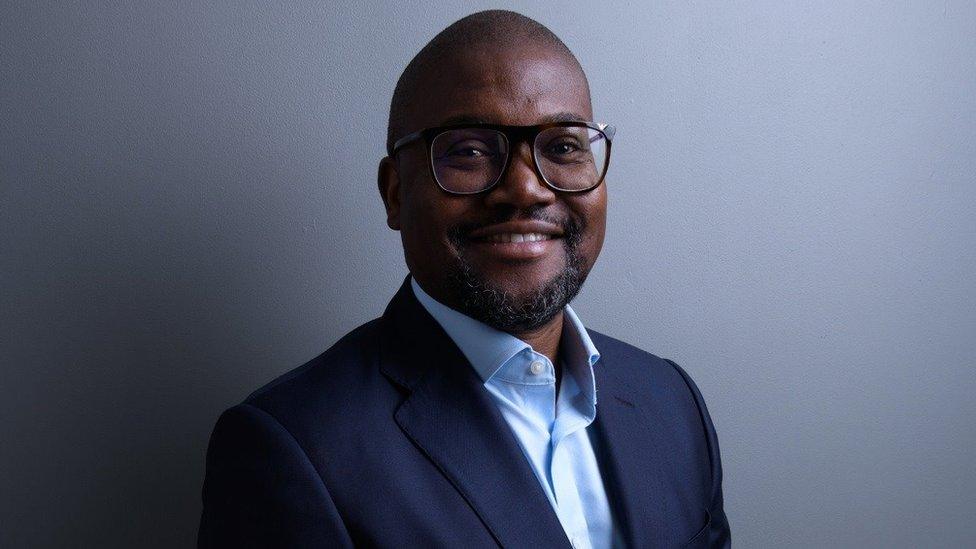
UHBW chief executive Eugine Yafele said some of the report was "incredibly uncomfortable" to read
The report said 109 cases were raised through the whistleblowing scheme in 2022/23.
Of these, six related to patient safety, 10 about bullying or harassment, 20 in relation to worker safety or wellbeing and 27 about inappropriate attitudes or behaviours.
The report said work to improve recruitment processes had resulted in a "sharp decline" in complaints about nepotism and unfairness.
UHBW director of corporate governance and FTSU guardian Eric Sanders said the "key message" was to think about the individual and show them compassion and humanity.
This will allow the trust to "compassionately respond to individuals when they raise concerns, and do things differently with that in our minds," he said.
UHBW chief executive Eugine Yafele admitted there were "aspects of the report that are incredibly uncomfortable to read."
"Culturally we have some way to go," he added.
"There is a golden opportunity for us not to do what we've always done."
Board chairwoman Jayne Mee said she wanted to see people within the trust "taking self-ownership for solving problems and talking, listening and really working things through" over the next year.

Follow BBC West on Facebook, external, Twitter, external and Instagram, external. Send your story ideas to: bristol@bbc.co.uk , external
- Published23 June 2023
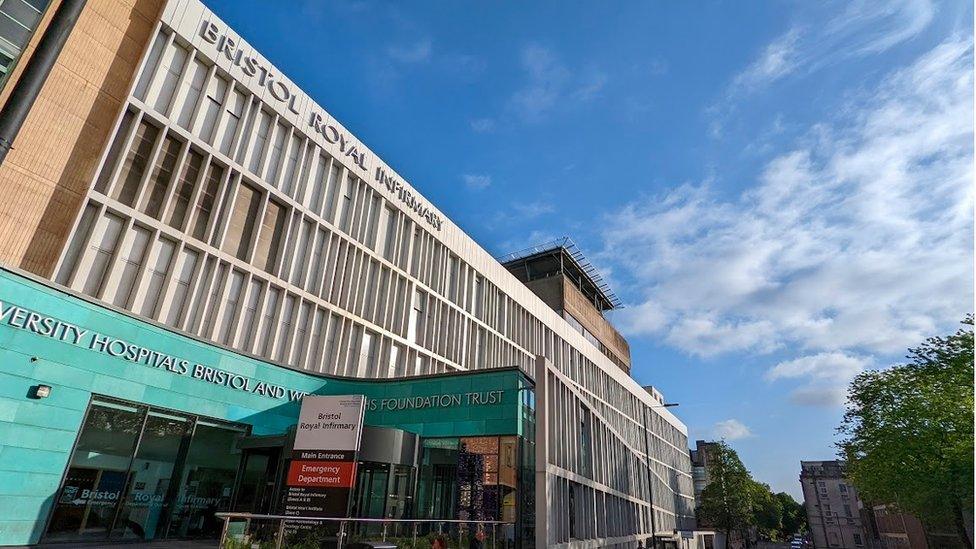
- Published12 April 2023
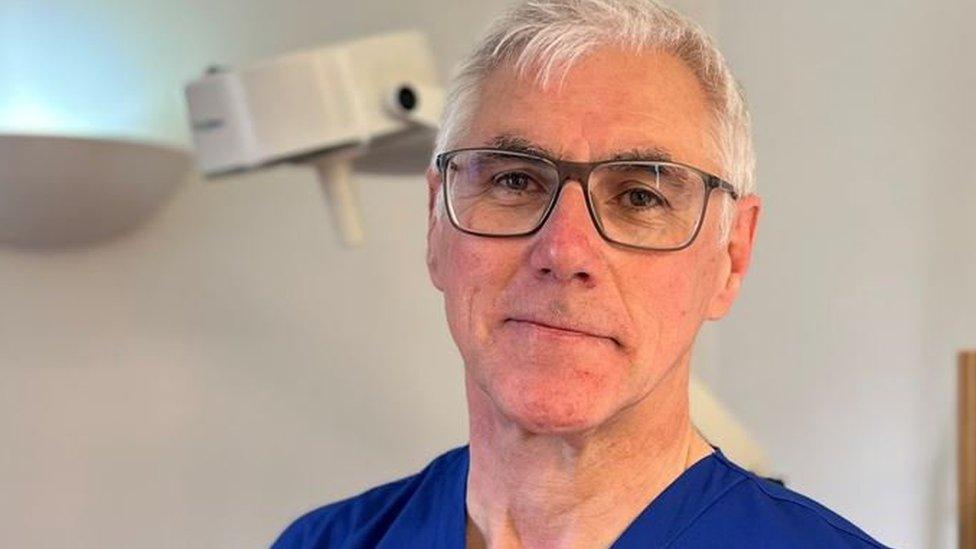
- Published14 March 2023
